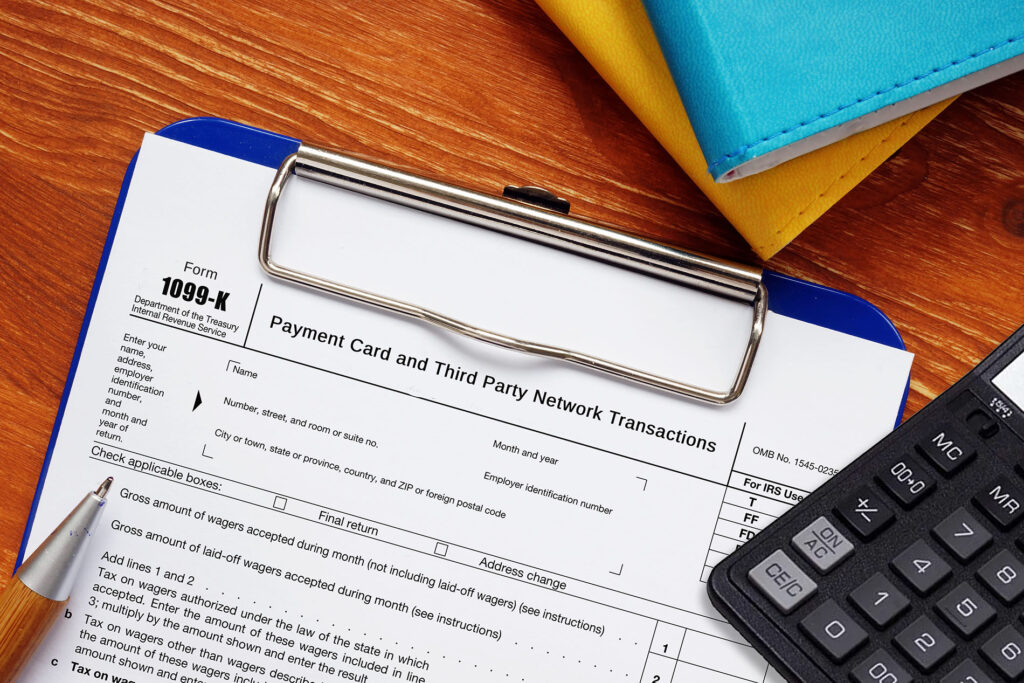Over the past several years, there has been a debate over changes to the Form 1099-K reporting threshold. The 1099-K is a form that was introduced in 2022 for third-party payment platforms such as Etsy, Shopify, and other e-commerce platforms to report the sales their users transact each year for income tax purposes.
If your freelance business generates income and receives payments through these platforms you need to be aware that the changes to the reporting thresholds that were slated for 2022 (and again in 2023), from $20,000 in annual gross sales to trigger reporting to $600 have not yet been instituted. It is extremely important regardless of these changes that you track and report all income you generate from these platforms.
It is anticipated that for calendar year 2024 a phased-in approach will be instituted. This will change the current de minimis threshold from $20,000 (and over 200 reportable transactions) to $600. The change was considered drastic, prompting the IRS to back off on enforcing the new Form 1009-K rules and try to implement a stepwise approach instead.
The proposed 1099-K compromise recently announced will not affect freelance tax filings for 2023. If the proposal is accepted, the $600 threshold will be reached over time, with the threshold for 2024 set at $5,000. To make sure your freelance tax filings are in compliance with these reporting rules, review the following facts about 1099-K reporting:
- The IRS has clarified that reportable transactions on Form 1099-K, including those business transactions (not personal transactions between family and friends) taking place through “online and social media marketplaces, craft or maker marketplaces, auction sites, resale sites, crowdfund crowdfunding platforms and freelance marketplace.”
- Currently, the reporting threshold applies when a taxpayer completes more than 200 business transactions per year, exceeding an aggregate amount of $20,000. Note that this does not apply to personal transactions between friends or family members for incidental, personal purchases.
- Tracking and reporting all 1099-K income is mandatory.
There will likely be further clarification on the 1099-K thresholds and reporting in the near future, so stay tuned for updates.
Now that you know about changes to 1099-Ks affecting freelancers, these tips can help you with your own 1099 reporting:
- Remember that you need to report all freelance business income on your tax return no matter where it is derived from. For example, if you received payments labeled as “goods and services” from one or more TPSOs in the amount of $600 or more you will receive a 1099-K because these apps have separate accounts allowing users to identify which of their transactions are for goods and services. These are the only transactions labeled as such that will be considered for the 1099-K form.
- Be sure to report all income on your freelance tax return unless it is excluded by law, whether they receive a Form 1099-NEC, Nonemployee Compensation; Form 1099-K; or any other information return.
Make sure to factor in any income from third-party payment platforms in your estimated tax payments at the federal, state, and local levels.
You must pay tax on the money you earn or receive from activities occurring on TPSOs throughout the year, either through withholding or estimated tax payments. If these payments are in addition to a W-2 job or pension, and your tax withholding for these income streams is not enough, you will need to make additional estimated tax payments.
If you have multiple revenue streams from third-party payment or e-commerce apps and other sources, it is vital that you can accurately track and report all of the transactions you are facilitating. This will help protect you in the case of an audit and give you the most accurate numbers that you can use to plan for the year ahead.
Jonathan Medows is a NYC-based CPA who specializes in taxes for consultants across the country. His website has a resource section with how-to articles and information for freelancers. https://www.cpaforfreelancers.com/


